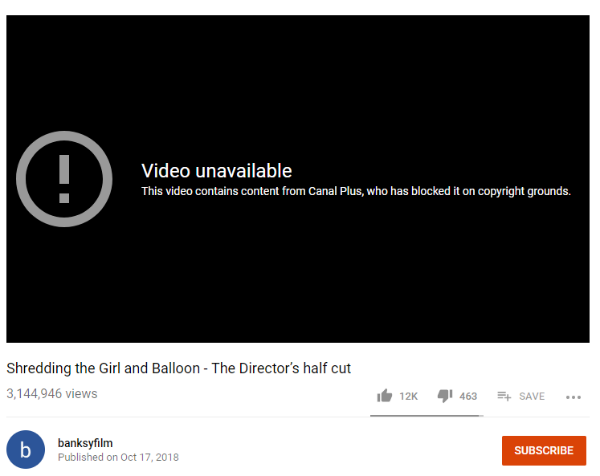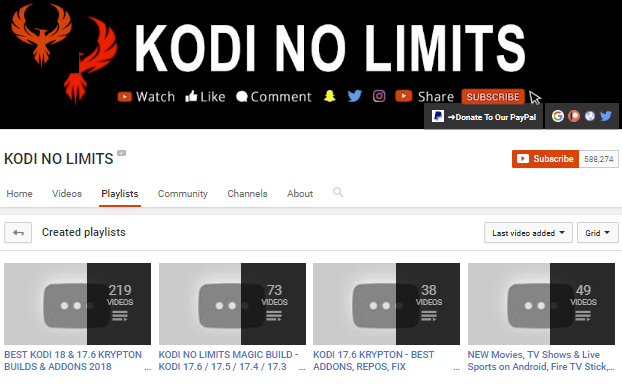 For many years, pirating of ‘live’ sports was only possible when people downloaded content after the fact via torrents and similar systems. With the dawn of fast Internet connections and more advanced streaming technologies, all that changed.
For many years, pirating of ‘live’ sports was only possible when people downloaded content after the fact via torrents and similar systems. With the dawn of fast Internet connections and more advanced streaming technologies, all that changed.
As a result, the majority of live sporting events can now be accessed in close to real-time via hundreds of streaming websites and dedicated IPTV services. This presents an unprecedented challenge to broadcasters who routinely pay out tens of millions for the right to offer such content through official channels.
While no countries can escape this situation, Italy is considered to be one of the regions where unlicensed consumption has grown particularly rapidly. New research from anti-piracy outfit FAPAV and market research company Ipsos highlights the extent of problem.
According to the study, 4.6 million Italians over the age of 15 are now viewing sports content from illegal sources, with an estimated 21 million instances of piracy in 2017 alone.
While ‘pirate’ streaming sites are reported to be providing much of the content, premium unlicensed IPTV services are taking a large slice of the action. According to Ipsos, around 35% of Italians consume live sports via such services while paying an average of 10 to 15 euros per month for the privilege.
During a recent presentation and conference, anti-piracy group FAPAV revealed that IPTV is already a serious problem for broadcasters.
“This is an issue of enormous importance and a new phenomenon in the field of audiovisual piracy, which needed to be studied in detail,” said FAPAV Secretary General, Federico Bagnoli Rossi.
“Copyright is being challenged internationally. There is a decisive confrontation on copyright and to defend it we need to make a system. The copyright directive under discussion in Europe and the new emerging issues must be tackled by working together, creating synergies.”
Rossi noted that the results of the Ipsos study indicate that the problem is not going away, affecting not only live sports but other forms of audiovisual content, all of which are available from illicit vendors at a market disrupting price.
“[T]he Ipsos data presented shows how the illegal IPTV galaxy is taking root in our country, becoming, in fact, a new form of piracy linked not only to films and TV series but also to live sporting events,” Rossi said.
“Our Federation, understanding the seriousness of the problem, wanted to bring together for the first time all the main actors operating in the production, distribution and protection of audiovisual content, to understand how to deal, in an inclusive and effective way, a behavior that not only damages the industries and the economy of our country, but also goes to feed the illicit market and the criminal organizations that run it.”
Maria Vittoria De Simone, Italy’s Deputy National Prosecutor for organized crime, agreed that IPTV is now one of the preferred methods to watch content illegally, noting that soccer matches are now the most pirated content, with an outlay of just a few euros per month enabling the public to get in on the action.
Citing a 2017 survey which found that damage to the Italian economy is now estimated to be around a billion euros in turnover affecting some 6,000 jobs, Simone said that dealing with the IPTV problem won’t be easy.
“This crime is difficult to investigate, because it is widespread on an international scale, with individuals who evade the police in an area that for too long has been underestimated and little considered,” Simone said.
“What is certain is that the phenomenon has a high impact on the market, with alarming economic dimensions,” she added, noting that this type of piracy is often tolerated by the public, since they are offered a cheap alternative to more expensive commercial offerings.
“In the absence of a concerted action at the international level, the criminal groups have emulated the commercial models of legal companies, with obvious advantages to act outside the market rules. Thus a parallel and criminal commercial context was born, with a cloned product put in circulation even in advance of normal programming.”
While calling for new tools and strategies, Simone said that the problem should be dealt with using blocking measures, restrictions on sales and advertising, plus a “follow-the-money” approach.
“I believe that there are no obstacles to the possibility of using these blocking measures not only against DNS, but also to static IP addresses, so as to prevent the repetition of illegal activities,” she added.
Stan McCoy, MPA President EMEA, praised Italy for its contribution to the audiovisual industry but noted that the problem presented locally by streaming piracy is not unique.
McCoy said that there are an estimated 1.9 million users of illegal IPTV in Germany while in the US, 6.5% of household access pirated services, with almost all of those utilizing set-top boxes to access premium TV including live sports. The UK, he said, is also suffering with the problem.
“In Britain, over the past three months, about 6.5 million people have benefited from pirated content and 10% of the British population have access to illegal devices to enjoy pirated content,” McCoy added.
Source: TF, for the latest info on copyright, file-sharing, torrent sites and more. We also have VPN reviews, discounts, offers and coupons.

 Banksy is without a doubt one of the most mysterious yet best-known street artists in the world.
Banksy is without a doubt one of the most mysterious yet best-known street artists in the world. 



 A few days ago, the undefeated WBC heavyweight champion Deontay Wilder took on Tyson Fury.
A few days ago, the undefeated WBC heavyweight champion Deontay Wilder took on Tyson Fury.